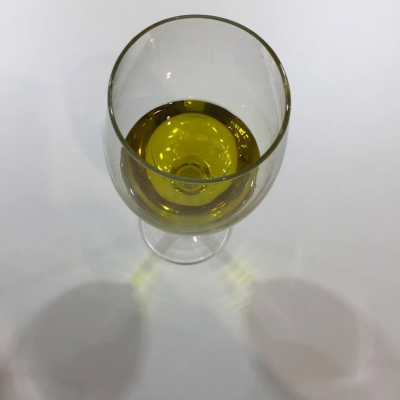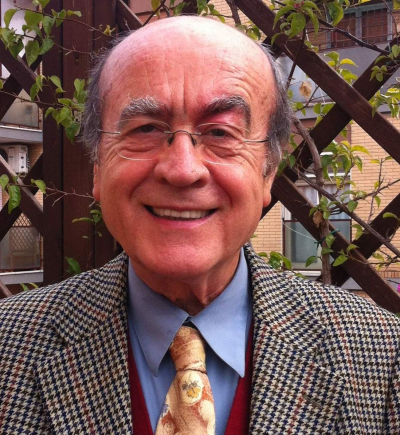Customer or consumer?
Customers nowadays want to be part of the project behind the production process leading to the creation of products and provision of services. They are no longer spectators in the marketing theatre

We are in the midst of a historic revolution. We are passing from a society characterised by mass production and uniform consumption preferences to one where the individuals are no longer consumers, i.e. passive recipients of goods or services, but become active protagonists, and the information asymmetry existing between producers and consumers is constantly eroding thanks to technological advances in computer technology.
Consumers now want to be part of the project behind the production process leading to the creation of the product or the provision of services. They are no longer spectators in the marketing theatre.
Nowadays, we do not define ourselves according to our social class or political opinions but by our lifestyle and vision of the world. We pay less attention to living standards and more to the quality of our life. The way we view consumption has also changed, passing from the act of receiving goods or services in exchange for money to a more social action, where the consumer plays an active role in the creation of value. This new relationship between production and consumption is the result of co-learning, and to describe it, new expressions have been coined, such as “consumer actor”, “co-producer”, “user-participant”, which are replacing the more military ones linked to a competitive vision of the market, e.g. “strategy”, “capturing”, “targeting”, “loss”, “progress” and “retreat”.
Not everything however goes according to plan. The idea of marketing evolves, for instance, towards that of “socialing”, a rather vague expression used to describe the changes that have occurred in the demand for goods and services as a result of higher education and the digital revolution.
The situation however had already started to evolve back in the Nineteen Seventies, but these changes are only now being analysed, often wildly overestimating or simplifying them so as to make them instrumental for communication purposes.
At the same time however, we have reclaimed a meaning for the act of consuming that we had long forgotten. Consuming does not only mean destroying or using up, nor is it synonymous with wasting. This connotation is closely linked to a materialistic vision of consumption, but nowadays the immaterial value of the purchased goods or services is gaining increasing importance, and owning something implies more than just using or exploiting it.
We hear more and more about critical, ethical or responsible consumerism. Even the idea of soil consumption should be reviewed and adapted, to find a new, sustainable balance. In a certain sense, we are returning to a lifestyle and philosophy that was typical of our rural past, when the gathering and consumption of the fruit of the land was accompanied by convivial and social rites aimed at ensuring reproducibility.
Consuming is once again synonymous with using, and both are indissolubly linked to the act of producing and creating value. If we choose to eat consciously, we want to know everything about the food we are consuming: we want to create a bond with the producer and have a say in the production process. Many producers now allow us to go into the fields and orchards and gather the fruit and fresh products we wish to purchase.
This form of exchange is usually referred to as “Pick-your-own”. With the help of an expert, we can purchase wine, oil or any other goods, choosing the type of grapes or olives we want in the vineyard or olive grove and personally selecting the blend we wish to create. We hence become co-producers of the wine or oil that we serve at our table. If we go to a vegetable garden or a riding school to exercise we are no longer users, but members of an activity: we become “vegetable farmers” or “horse wranglers”.
Whoever plays an active role in cultural, educational, social and health-promoting activities taking place in a productive context should be referred to as “client”. Nowadays we have some scruples about using this expression, because throughout time it has acquired a plurality of meanings. The expression “client” however stems from a common Indo-European root, śru, which evolved into the Sanskrit verb śru, the Greek kly and Latin clu. The Indo-European root śru, was composed of ś+ru, i.e. “to be close [ś] to a noise [ru]”.
The original meaning of these roots is therefore “to listen”, “to hear”.
The Sanskrit verb śru and the ancient Greek one klỳō preserve the same meaning. The Greek root however also evolved to indicate “having listened” and “what is mentioned and boasted about”, becoming klèō, “to celebrate”, “to glorify”. The corresponding Latin verb is clueo, -ere “to hear about s.th.”, “to be famous”, “to be known as” and “to be appreciated”.
With Seneca, clueo evolved into cluo. From its present participle cluens, -entis comes the Latin noun cliens, -entis, indicating “whoever, in ancient Rome, lived under the patronage of a powerful person or patrician (patron)” and in a wider sense, a “follower”.
In our present-day language, the word “client” defines “whoever purchases goods or services from a shop or company”, “a person or group that uses the advice or services of a professional” or “a regular customer”.
From the word “client” comes the noun “clientele”, i.e. the clients or customers of a professional person or shop, considered collectively, as well as the adjective “cliental”, pertaining to clients. In the Italian language, cronyism, i.e. the practice of favouring one’s close friends, especially in political appointments, regardless of their suitability, in order to obtain some advantages, is translated as “clientelismo”.
This long discussion on the semantics of the noun “client” helps us distinguish between the route leading a free citizen to establish a relation of dependency or associate for reasons of interest with a patron, and that leading to a stable, prolonged relationship of equality, laying the foundations for the exchange of goods or services. It is this latter route that is more closely linked to the original meaning of the expression “client”, and to its Indo-European root śru, i.e. “to listen”. In this sense, the client is whoever listens and at the same time is listened to. The client has a potentially active and equal role. Also in the case of cultural, educational, social and health-promoting services, the help relationship between client and care-giver can be founded on equality and shared responsibility. The members of the “care farms” in the Netherlands are always called “clients”. Perhaps in that country the word has a meaning closer to that of its ancient Indo-European root.
We can therefore say that producing, listening to each other and consuming are no longer independent actions, but form the stages of a single act with which we define and express our identity, build our daily lives and establish relationships with other individuals.
To comment you have to register
If you're already registered you can click here to access your account
or click here to create a new account


Comment this news